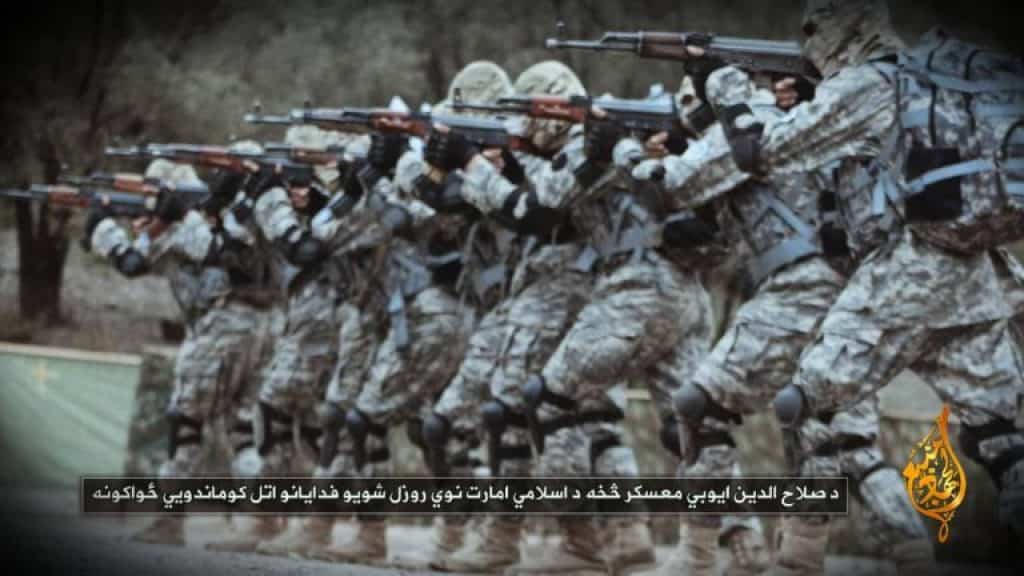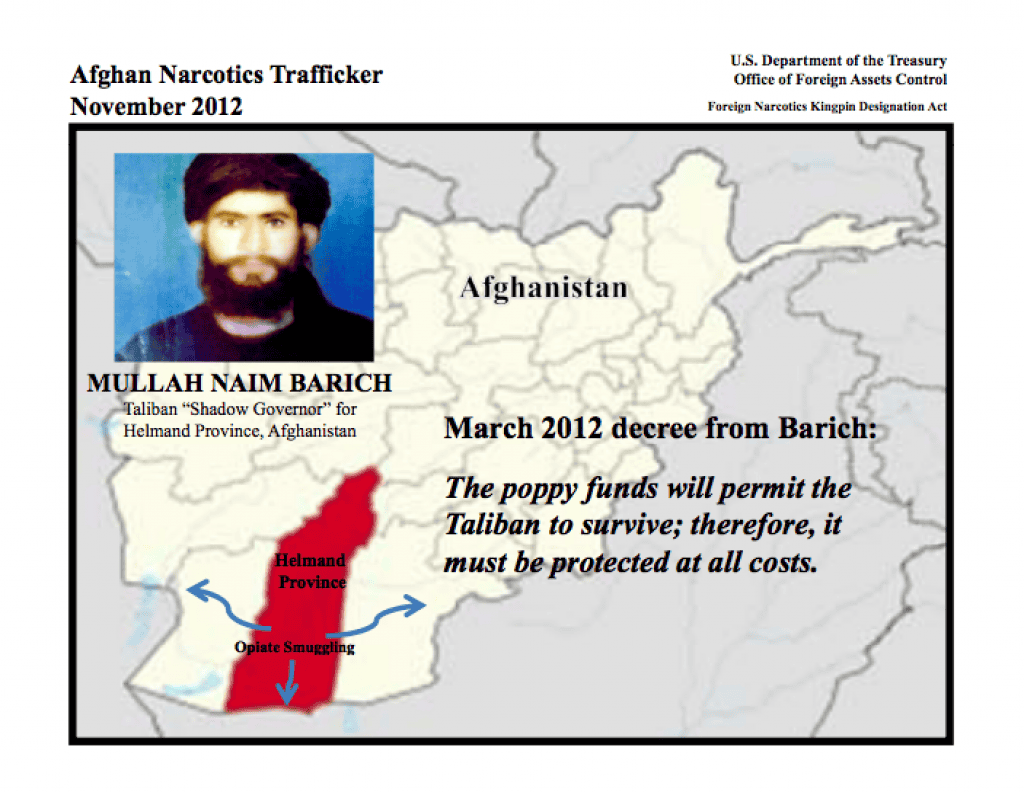
Eleven Taliban leaders and members have been freed in exchange for three Indian engineers who were kidnapped last year, according to TOLOnews and The New York Times.
One of the freed Taliban commanders is a notorious jihadist known for his involvement in the narcotics trade, facilitating suicide bombers and working with al Qaeda.
That Taliban leader, Maulawi Abdul Rashid Baluch (“Rashid”), was added to the U.S. government’s list of specially designated global terrorists in 2015. The U.S. Treasury Department provided a biography for Rashid at the time, explaining that he was implicated in the death of an American soldier.
“In mid-2013,” Treasury explained, “Rashid ordered the emplacement of an improvised explosive device (IED) in Nimruz Province which resulted in an explosion that killed one U.S. soldier.”
Around that same time (mid-2013), according to Treasury, Rashid also “served as a Taliban liaison officer to al Qaeda (AQ) and was responsible for planning meetings between Taliban senior leadership and AQ members in Karachi, Pakistan.”
The U.S. government emphasized Rashid’s role in the Taliban-al Qaeda nexus.
“Today’s action highlights the Taliban’s continuing ties to al Qaeda in Pakistan, its destabilizing criminal activity in Afghanistan, and its continued efforts to undermine U.S. interests and harm U.S. personnel in Afghanistan,” said Adam J. Szubin, who was the Acting Under Secretary for Terrorism and Financial Intelligence at the time.
The timing of the exchange is noteworthy, as Special Representative Zalmay Khalilzad recently traveled to Pakistan, where he may have been attempting to revive diplomatic talks with the Taliban.
Khalilzad has claimed that the Taliban’s political office in Doha assured him that the group would break with al Qaeda in exchange for an American withdrawal timetable. Although Khalilzad said in January 2019 that he was already satisfied with the Taliban’s supposed counterterrorism assurances in this regard, more than two decades of evidence points to a longstanding and close alliance between the Taliban and al Qaeda. And Rashid is just one of many figures in the relationship.
According to Treasury, Rashid served as the Taliban’s shadow governor for the Nimruz Province from early 2008 until late 2012 — the same Afghan province where an American was killed by a Taliban IED in 2013.
More recently, the U.S. military and Afghan forces launched a joint raid on al Qaeda in Nimruz as recently as late last year. An American, Sgt. Leandro Jasso, was reportedly killed by accident by Afghan fire during the operation.
Rashid was imprisoned at the time of that raid, but his activities in Nimruz stretch back years, according to Treasury’s biography. In early 2008, along with a “Taliban associate,” Rashid “facilitated the movement of three suicide bombers for attacks in Nimruz Province.” Rashid has helped deploy “suicide bombers to conduct vehicle-borne IED attacks on senior Afghan government officials and non-governmental organization workers” and also transported improvised explosive devices (IEDs) “to Afghanistan that were used by the Taliban to target Coalition Forces.”
Involved in narcotics trade
The U.S. Treasury implicated Rashid in the Taliban’s drug trade, saying he worked with another senior Taliban leader: Mohammad Naim Barich. The pair “agreed to share all profits the Taliban received from narcotics trade and commercial fuel convoy taxation in two districts in southwestern Afghanistan to support Taliban operations.”
Treasury added Barich, the Taliban’s shadow governor in the Helmand province, to the US government’s narcotics kingpin list in 2012.
Barich issued a decree in March 2012, saying the “poppy funds will permit the Taliban to survive” and, therefore, “must be protected at all costs.” His narcotics smuggling operations extended from Helmand into Pakistan and Iran.

A map released by Treasury showing Barich’s smuggling operations can be seen above. [For more on Barich and the Taliban’s narcotics smuggling, see FDD’s Long War Journal report, US adds Taliban shadow governor of Helmand to narcotics kingpin list.]
Rashid “has also been involved in multiple narcotics-related financial activities,” the U.S. government said in its designation announcement. Rashid delivered “funds collected from narcotics traffickers to Taliban commanders” and “collected payments for the coordination of Taliban protective escorts for narcotics shipments.” Those payments were then “disbursed…to Taliban subordinates.”
Rashid and ten other Taliban commanders have now been released from custody inside Afghanistan. One of the other newly-freed Taliban leaders is Sheikh Abdul Rahim, who once served as the Taliban’s shadow governor for Kunar Province. Kunar has long been a hotbed of al Qaeda activity.
*Note: The spelling of al Qaeda has been made consistent throughout, including in quotes from the Treasury Department, which used al-Qa’ida.







